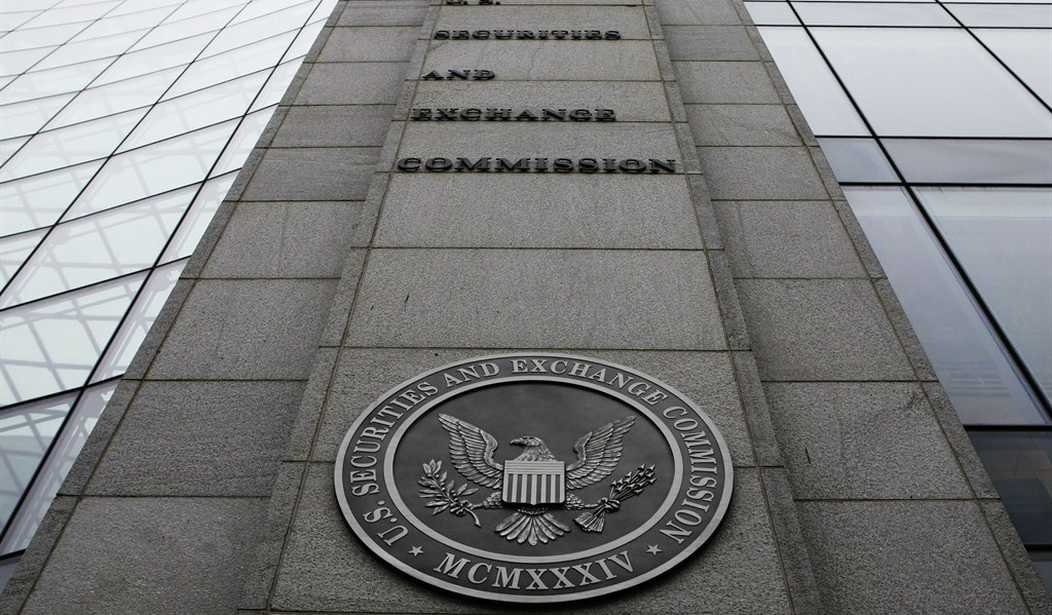The Securities and Exchange Commission (SEC) - an agency tasked with “protecting investors, maintaining fair, orderly, and efficient markets, and facilitating capital formation” - might be toning down its support for Environmental, Social, and Governance (ESG) principles following backlash to its proposed Scope 3 emissions rule.
Two recent developments potentially point to Chairman Gary Gensler singing a different ESG tune. This is, in large part, due to Republican pushback in the states and financial asset managers, including BlackRock, ditching ESG-linked mutual funds.
First, Fox Business’ Charlie Gasparino revealed on X, formerly known as Twitter, that BlackRock CEO Larry Fink - who’s gone back and forth on ESG - reportedly nudged Chairman Gensler to lay off ESG policies and urged him to “tone down intensity.”
Secondly, Bloomberg Law reports SEC examiners nixed any mention of ESG investing in its 2024 Division of Examiners priorities released on Monday.
The ESG movement, as a whole, is not doing so hot these days. Yet, its proponents are looking for work-arounds with biodiversity reporting and deploying entities like natural asset companies (NACs) to “fight the climate crisis” and achieve net-zero by arbitrary deadlines.
The SEC published a rule on October 4th to amend the New York Stock Exchange (NYSE) Listed Company Manual “to adopt a new listing standard for the listing of Natural Asset Companies.” The comment period ends on November 17th, 2023.
"Ending the overconsumption of and underinvestment in nature requires bringing natural assets into the financial mainstream. To that end, the Exchange proposes to adopt listing standards to introduce a new type of public company called a NAC, a new concept pioneered by Intrinsic Exchange Group Inc. (“IEG”). Founded in 2017, IEG is a private company structured as a corporation organized under the laws of the State of Delaware that advises public sector and private landowners on the creation of NAC structures and strategies,” the rule reads.
Recommended
It continues, “NACs will be corporations that hold the rights to the ecological performance ( i.e., the value of natural assets and production of ecosystem services) produced by natural or working areas, such as national reserves or large-scale farmlands, and have the authority to manage the areas for conservation, restoration, or sustainable management. These rights can be licensed like other rights, including “run with the land” rights (such as mineral rights, water rights, or air rights), and NACs are expected to license these rights from sovereign nations or private landowners."”
The NYSE is already on board with NACs, heralding them as a “new class of listed company” prioritizing ecological services. Ecological services, or goods provided to us by nature, include timber, wetlands, forests, and pollinators. Why the embrace? NYSE, like the IEG, believes these entities will “fight” climate change and usher in “the transition to a more sustainable economy”—just like ESG.
NACs, unsurprisingly, are greatly aligned with the White House’s National Strategy to Develop Statistics for Environmental-Economic Decisions report to “put nature on the nation’s balance sheet.”
American Stewards of Liberty Executive Director Margaret Byfield warned, however, NACs essentially “monetize the air we breathe.”
Byfield explained, “According to the report, new “Natural Capital Accounts” will be used to “quantify” nature’s value and list those values as new assets of the federal government. This would provide a basis to increase the national debt and impose new fees and taxes on the American people. It will also establish the fixed and intrinsic value for the federally protected lands, positioning them to be enrolled in the private NAC accounts.”
But what is the actual purpose of an NAC? Byfield warned NACs will “transfer the natural resource wealth held by America’s landowners to a green cartel that now includes IEC, the government, and special-interest environmental and conservation groups.”
This is not only applicable to private lands. Public lands will be impacted, as well. So-called “conservation areas” – including a recently-announced 5.8 million acre parcel in Montana - would be “Hybrid Areas” under an NAC scheme. Hybrid areas comprise federal lands, private lands, and “conservation areas.” More troubling is that financial asset managers, including those with ties to the Chinese Communist Party (CCP), could buy an interest in these “conservation areas.”
This sounds like corporations, with the federal government’s blessing, would control our natural resources on both private and public lands. This should be distressing to anyone who calls themselves a conservationist.
NACs also parallels corporate farming efforts - commonly referred to as “institutional farmland ownership" to usher in the “the separation of farming operations from its capital base.”
Last month, I mentioned this alarming practice before the 2023 Kansas Legislature Special Committee on Foreign Adversary Investments and Land Purchases and said the following: “The Cowboy State Daily, a Wyoming-based newspaper, also reported in January about the diabolical plan by the not-for-profit retirement market provider, Teachers Insurance and Annuity Association (TIAA), with its subsidiary Nuveen, to facilitate “the separation of farming operations from its capital base” by creating a model of investors owning farmland with tenant farmer leasers. The outlet reports it’s the largest global manager of farmland assets, totaling $10.3 billion of farmland assets and over 2 million acres under management. But Nuveen is hungry for more. It has “identified” and “evaluated” 3.8 billion acres of croplands worldwide–including upwards of 32 million of U.S. croplands valued between $420-500 billion– “suitable for institutional investment.””
The SEC should stick to its mission, not undermine true conservation practices and natural resources management by transferring wealth, including access, from land owners and public lands recreationists to corporations.
The federal government already facilitated the greatest transfer of wealth from Main Street to Wall Street during the COVID pandemic. Given the parallels here, they shouldn’t greenlight this ESG-adjacent scheme either.

























Join the conversation as a VIP Member